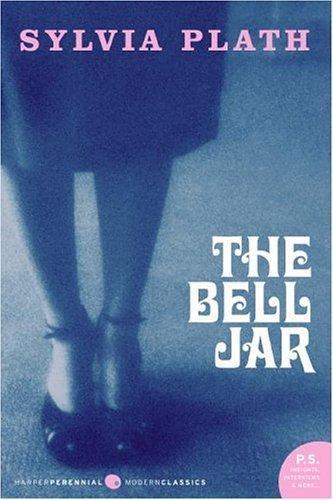Gertie MacDowell reviewed The Bell Jar by Sylvia Plath
Sadly Plath's only novel.
4 stars
Content warning Obvious topics related to mental health and death
I'll admit that I did not like Sylvia Plath when we had to study her poems in school. However, times and tastes change and what prompted me to read 'The Bell Jar' was finding that it references 'Finnegans Wake'. They had a copy at my library and so I decided to give it a go.
It's not a 'happy' book but it is an enjoyable read. Plath's writing style seems a bit immature but then the author is supposed to be barely 20 years old. That said, the writing seems natural for the first person and Plath throws in so many great lines seemingly out of nowhere. A favourite: “There is nothing like puking with somebody to make you into old friends.”
The gradual decent of Esther into mental illness is portrayed quite naturally, as you would expect Plath's firsthand experience to allow. She makes it all seem so rational when, as the reader, your viewpoint is entirely contradictory. Yet you are never left wondering 'how?', Plath serves up plenty of justification and so Esther's actions never come across as desperate. Perhaps this is the novel's greatest strength: portraying the path to suicide as something as natural as booking a holiday, complete with decisions to make and obstacles to overcome.
Of the difficulties with the novel, it is hard to relate to the treatments described as so many have been discredited or superseded. Even being committed to an institution is far rarer than in the early 1950s. But given broad public knowledge of such treatments (through other books, movies, etc.) it is not hard to comprehend the experience.
Overall, The Bell Jar is a great book and it really makes one wonder what other novels Plath would have turned out had she lived.

